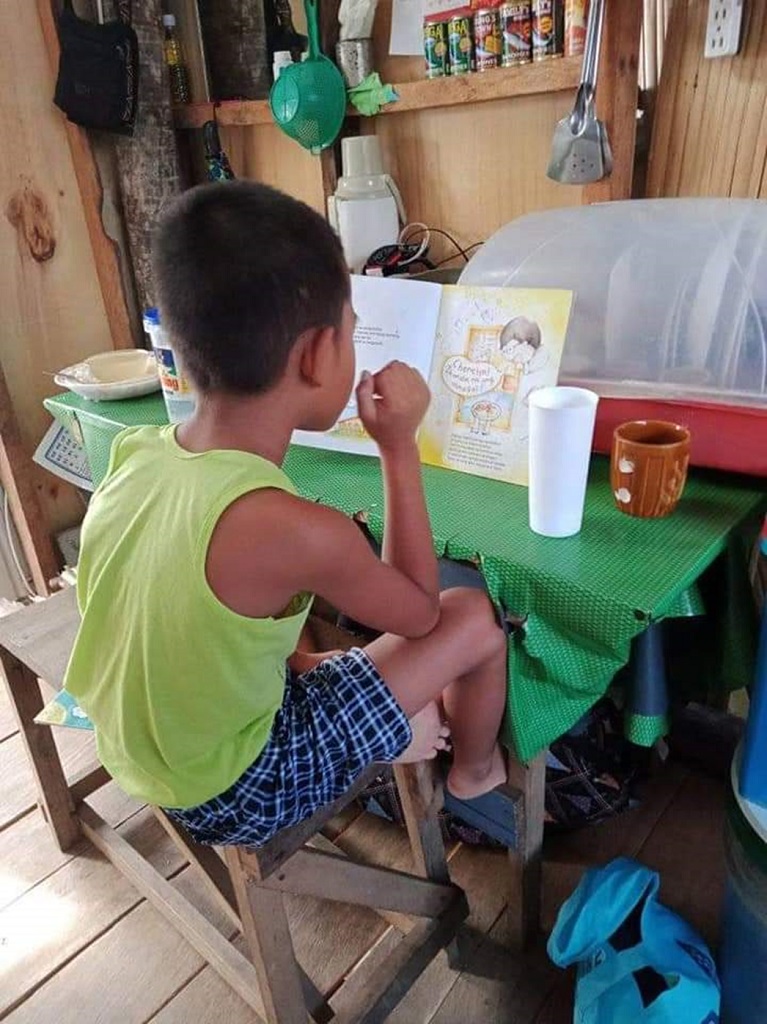
MANILA, Philippines – The world has been experiencing a prolonged period of uncertainty and turmoil caused by the coronavirus pandemic. Aside from the unprecendented health crisis, we are also facing potentially one of the greatest threats to education.
In an effort to curb the spread of COVID-19, several governments around the world temporarily closed educational institutions.
According to the latest data released by the United Nations Educational, Scientific and Cultural Organization (UNESCO), more than 1.190 billion or almost 70% of the world’s student population have been affected by the said closures.
Indeed, starting the school year late or interrupting it completely disrupts the lives of many children, parents, and teachers. But a lot can also be done to at least reduce the impact through remote learning strategies. (READ: No student left behind? During pandemic, education 'only for those who can afford')
In the Philippines, the pandemic affected accessibility to education. As more schools shift to virtual and distance learning, non-governmental organizations such as the Pilar Reading Center (PRC) provide interventions so that students from vulnerable areas can sharpen their reading and comprehension skills without leaving their home. (READ: Teacher walks extra mile during pandemic to help students in Sorsogon)
PRC started in 2010 as a storytelling initiative of Lowel Andrian Solayao, a 2017 Search for Outstanding Volunteer national awardee, for 3 children.
Ten years later, PRC is now composed of students and young professionals from Pilar, Sorsogon who regularly conduct literacy activities for the benefit of the children and youths of their town. Since 2015, PRC has been conducting annual summer reading camps, which they had to cancel this year.
Bringing the classes at home

With the learning and educational gaps brought about by the pandemic, PRC hopes to help their regular learners by providing modular reading activities and partnering with parents. Thus, Project Personalized Activities with Contextualized Experiences (PACE) was conceptualized.
Project PACE is a two-week home-school learning experience with the help of parents or guardians as teachers and facilitators at home. The project includes the use of modular reading activities and worksheets prepared by PRC volunteers to provide a variety of educational exercises to regular PRC learners aged 6 to 12 years old in two weeks.
The modules feature real-life themes and content, as well as activities designed to educate the students about the novel coronavirus outbreak and the consequent community quarantine. There are two modules, with the first tackling the importance of good hygiene and surroundings, while the second focuses on the impacts of COVID-19 on agriculture and economy.
These modules were refined with the help of parents and guardians, who were later trained to serve as teachers and facilitators at home for Project PACE.
To empower learners and give them a sense of achievement despite the pandemic, a house-to-house recognition event was conducted for students who completed the program. Food packs and hygiene kits were also given as awards to students and their parents or guardians.
The second phase of Project PACE runs from May 28 to June 12. Students have a hands-on focus on planting crops in their homes.

Because of the tremendous support given by parents and other community stakeholders, PRC volunteers are now able to prepare and produce another program called #ProjectPACEforToddlers catering to 12 toddlers, so far.
Hit the books
Despite the ongoing health crisis, PRC volunteers are still hopeful that their actions provide their students a quality learning experience.

Aside from a home-school learning program, PRC has also provided other alternatives to help educate residents in Sorsogon. (READ: While classes are on hold, students find ways to help affected communities)
In a bid to inspire more bookworms, the PRC launched the Borrow Books for Barangay Banuyo (4Bs) Program on April 15. Through the program, residents, regardless of age, can select books from PRC’s book recommendations of the week as posted on their Facebook page or request a title that’s available on PRC shelves.
The 4Bs program hopes to encourage the children to read and, at the same time, help parents to encourage their children to be avid learners and bookworms.
Under Solayao’s leadership, PRC’s vision rests on the crucial role of book reading in every children’s cognitive and affective development. For the volunteers, they hope that this vision on early literacy can later blossom into even bigger goals for the children. (READ: A pandemic makes neighbors look out for each other in Sorsogon)
Education systems must also be thinking of how they can recover amid this crisis, with a renewed sense of responsibility of all stakeholders and with a better understanding and sense of urgency for the need to close the gap in opportunities and assuring that all children have the same access to quality education. – Rappler.com
Tricia Marie Ayala is currently the program officer of Volunteerism for Development Communication and Advocacy Program under the Philippine National Volunteer Service Coordinating Agency.